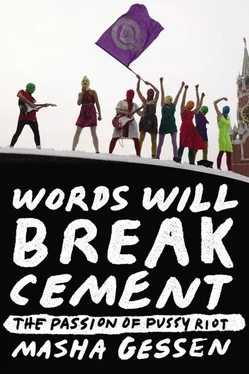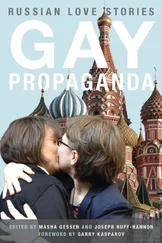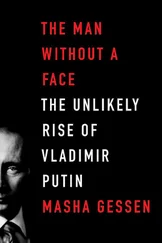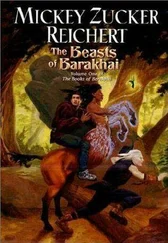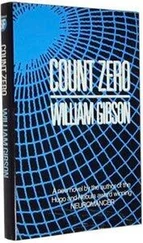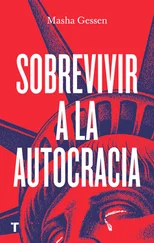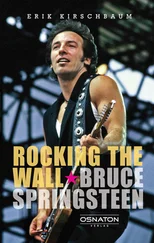We got into Moscow at three in the morning on a dirty-snow early March Friday. The following Monday would mark one year since the Pussy Riot women were arrested; that meant Nadya and Maria had exactly one more year left behind bars. The same day, Gera turned five.
PART 1
Becoming Pussy Riot
HERE IS WHAT I was trying to figure out: how a miracle happens. A great work of art—something that makes people pay attention, return to the work again and again, and reexamine their assumptions, something that infuriates, hurts, and confronts—a great work of art is always a miracle.
The temporal borders of this miracle were fuzzy. Certainly it had begun earlier than the morning of February 21, 2012, when five young women entered the Cathedral of Christ the Savior in central Moscow to stage what they called a “punk prayer” against the backdrop of its over-the-top gaudy, gilded interiors. It had begun earlier even, I thought, than the fall of 2011, when a larger, ragged-edged group of women started to call themselves Pussy Riot and engage in punk rock performances. It had begun, in fact, years or even many years earlier.
To create, and to confront, one has to be an outcast. A constant state of discomfort is a necessary but insufficient condition for protest art, however. One also has to possess a sense that one can do something about it, the sense of being entitled to speak and to be heard. I asked Nadya where she got that.
Our communication was awkward: we had no more than a passing acquaintance before she was arrested (soon afterward I realized with a jolt of regret that she had “poked” me on Facebook—an attempt at communicating I had cavalierly ignored in part because I was unsure how one responds to being “poked”), and now I wrote to her in the penal colony, knowing that my letters as well as Nadya’s responses would be seen by the censors. “I am trying to understand the origins of the independence of your thinking and your ability to shape your own education…” It was not just the expectation of the censors’ eyes that made my writing feel stilted; it was also the fact that I was using a pseudonym, one suggested by Nadya in a rare note smuggled out past the censors. In it, she laid out the terms of our correspondence: never mention writing a book or any intention of publishing our correspondence; bear in mind that the letters will be read by censors; consider using a pseudonym—say, Martha Rosler. So I came to sign my letters with the name of a contemporary American feminist artist who I am sure had no awareness I was using her name as a cover-up.
Hello, Martha,
On the subject of independent education and the origins of a rebellious personality type. A significant role in my story was played by my father, Andrei Tolokonnikov. He managed, amazingly, to focus my vision in such a way that now I am able to find things that are interesting, challenging, and curious anywhere at all. That includes the experience of being incarcerated. My father gave me the ability to receive all kinds of cultural production, from Rachmaninoff to the [ska punk] band Leningrad, from European art-house film to Shrek. At the age of 4 I could distinguish a Baroque building from a Rococo one, and by the age of 13, I loved [Venedikt Yerofeyev’s profanity-filled novella of alcoholic rumination] Moskva-Petushki and [nationalist opposition activist, former émigré writer and poet known for sexually explicit writing] Limonov. The lack of censorship in my education and, in fact, the concentration on that which could not pass the censorship of official Russian education pushed me to be passionate about possessing knowledge that privileged the culture of rebellion.
Nadya’s writing, I assumed, was stilted for some of the same reasons as mine: she was writing for me, for the censors, and for eventual publication in a foreign language. She was also writing about things rarely discussed in Russian, at least rarely discussed with the earnestness that her work—and my enterprise—seemed to demand. In addition, there was something profoundly wrong with the power dynamics of our epistolary relationship. I wrote to her by e-mail, using a service called Native Connection (no hint of irony here either). When I sent a letter, I had the option of requesting a response and putting a page value on it. I asked for three pages the first time and it proved insufficient, so from that point on I always asked for five. Each page cost fifty rubles (roughly $1.70) and the amount for the requested number of pages was immediately deducted from my Native Connection account. In essence, I was giving Nadya writing assignments—and paying for them.
A few days after I sent my letter by e-mail, Nadya would receive a printout of it along with blank pages in the quantity I had requested. She would write her responses in longhand—her script got smaller and harder to decipher if she was running out of space or more sprawling if she was running out of things to say with a page or so still to go—and I would eventually receive scans through the Native Connection website. If Nadya chose not to fill a page at all, she would have to write “Opportunity to respond rejected” on the blank page—and I would receive a scan of that as well.
ANDREI SHARED NADYA’S IDEA that he had been the architect of her independence, her personality, and even her art. “I am an expert in the upbringing of girls,” he informed me. “I approach it as a total performance.” He added that he had “authored the words ‘holy shit,’” the refrain that had been the ostensible source of some of his daughter’s problems.
Andrei came out of the woods to talk to me. For more than a decade he had been living in a friend’s house about an hour outside of Moscow. He called it his lair, and he said he cleaned it once a year. Our interview fell between these annual cleanings, so he said a visit was out of the question. Instead, I picked him up by the side of the highway and we drove around looking for an eatery that had both heat and electricity: less than fifty miles from Moscow, we were on the disintegrating fringes of civilization.
Andrei was born at civilization’s true fringe, in the world’s northernmost large city (where large is defined as having a population over a hundred thousand). “Half the population is behind bars and the other half is guarding them,” Russians have said of their country since the times of Stalin. In Norilsk, this was literally true. Founded in the mid-1930s, the city served as the center of Norlag, the mining-and-metallurgy arm of the gulag. Though the number of prisoners decreased in the 1950s following Stalin’s death and the Norlag was officially dissolved, forced prisoner labor was used in the mines through the 1970s.
Andrei’s father had been on the guards’ side of the prison fence. He had landed in Norilsk after World War II as a Party worker. He was, according to Andrei, a well-known and roundly hated Norilsk character. The young Andrei hated everyone back. “When I was five, I remember seeing elderly intellectuals in the streets—former Norlag inmates. Then they all died off, of course, and all that was left was bydlo .” Dictionaries suggest translating that Russian slang word as “cattle,” but that word does not come close to conveying the concentration of disdain and disgust educated Russians pack into the epithet for their compatriots: it is “white trash” but more derogatory, “redneck” but more frightful.
Andrei was educated as a doctor (this did not require nearly as many years or as much effort as an American medical education—and in his case, very little effort indeed was expended), but he did not feel like working as a doctor or, really, working at all. He thought of himself as an artist, though he was not sure what kind of art he should be making. He finagled his way into the Arts Institute in Krasnoyarsk, the nearest truly large city, as a correspondence student in music; he pretended to play the piano. During one of his visits to the institute, he met Katya. She was, unlike him, “an actual musician,” he told me; she played piano. She would even go on to study at a conservatory, and then to teach music to schoolchildren. She was generally more serious and better grounded than Andrei, and this pronounced difference between them might have ended their marriage sooner or prevented it altogether had it not been for one thing: they were oblivious, because they drank. Everyone in the Soviet Union did, more drunks and more drinks with every passing year. In the early 1980s, Soviet rulers came and died in quick succession—Brezhnev died, then Chernenko, then Andropov—but not before promising to do something about the epidemic of alcoholism. Mikhail Gorbachev appeared in 1985 and launched an all-out war on the drink. Andrei and Katya, then newly in love, drank. And drank. And drank. And had Nadya.
Читать дальше
